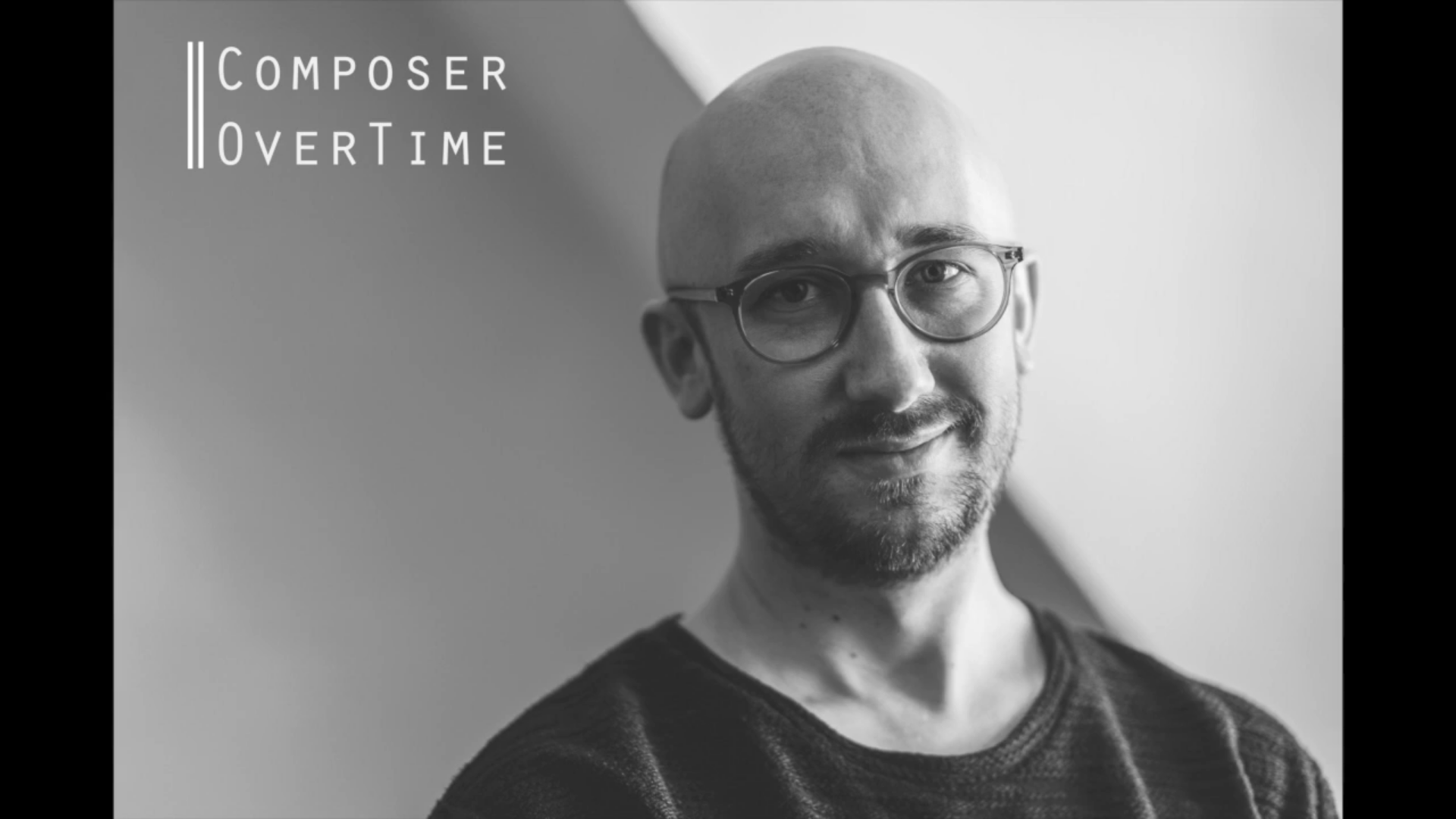photo: Manu Theobald
Portrait film (by Johannes List)
Interview with Composer OverTime
“…a spiritual event”
-Alex Ross [The New Yorker]
Timothy (Ti) McCormack (1984) writes haptic, viscous music which makes audible the tactile, physical relationship between a performer and their instrument. Sometimes ecstatic, sometimes hermetic, their music threads an intimacy between tone and noise to create strangely affecting sonic ecologies which alter one’s perception of time. They also engage with contemporary queer aesthetics: hæmal ancestries, incurable disease and its histories, mourning, listening, and the erotics of form.
They have been commissioned by ensembles such as:
and organizations or festivals such as:
Their music has also been performed by Ensemble Recherche, Ensemble Nikel, Collegium Novum Zürich, ensemble mosaik, Ensemble Dal Niente, the Talea Ensemble, and wasteLAnd; and programmed on the Wien Modern, Klangspuren, Darmstadt, Huddersfield, Maerzmusik, Eclat, Ultraschall, TRANSIT, Kalv, PGNM Bremen, and LUL Winter Composer festivals. Their work can be heard on the labels Another Timbre, Kairos, and Huddersfield Contemporary Records.
McCormack is the recipient of the Ernst von Siemens Music Foundation Composers’ Prize (2018). They won the Impuls International Composition Competition (2019) which resulted in a new work for Vienna’s Klangforum Wien. They were also awarded the George Arthur Knight Prize (2014) for their piece you actually are evaporating, as well as the John Green Fellowship (2017) for their “demonstrated talent and promise as a composer,” both from Harvard University.
McCormack currently teaches at University of California San Diego (UCSD), where they are Assistant Professor of Composition. Prior to that, they taught at Boston Conservatory at Berklee. They received their PhD from Harvard University (2019), where they studied with Chaya Czernowin and Hans Tutschku. They also studied at the University of Huddersfield with Aaron Cassidy and Liza Lim, as well as at the Oberlin Conservatory of Music with Lewis Nielson and Randolph Coleman. They have participated in the Schloss Solitude Sommerakademie (2009) and the Tzlil Meudcan Summer Courses (2012). From 2014-17 at Harvard University, they were the director of the Harvard Group for New Music, organizing concerts and residencies with ensembles such as Ensemble Dal Niente, the JACK Quartet, Ensemble Recherche, musikFabrik, the ELISION Ensemble, and many others. In addition to music, McCormack has also studied contemporary dance with Jill Johnson and has worked in masterclass or choreographic settings with William Forsythe, John Jasperse, Christopher Roman and Riley Watts.
“…it has a cumulative power that left me a little dazed the first time I listened… I heard that E-flat chord as a spiritual event. It was as if no such chord had existed before or would exist again.”
-Alex Ross [The New Yorker]
“Tim makes crystals (always has), in which the sharp detail of every moment is the point. The care with which this music is made is part of its character.”
-Tim Rutherford Johnson [Purposeful Listening]
“His work brings to mind processes of erosion, or long term processes caused by the effects of outside forces on organic systems. His work conjures the power of nature and simultaneously the vulnerability of nature.”
“What captivates about McCormack’s music is the listener’s dawning awareness to their own shifting perception in tandem with the music: one is in a permanent state of becoming-aware of that something else something other (someone other?) moving within and under sound.”
-Ty Bouque [Tempo]
“[…] one feels overwhelmed, emotionally, spiritually, musically […] I don’t need a full understanding of why McCormack’s music has such a profound effect, I’m just glad that it does, and my appreciation has only deepened on repeated listening.”
-Dominic Hartley [MusicWeb International]
“[…] superbly ear-scouring […]”
-Alex Ross [The Rest Is Noise]
"Timothy McCormack's music is intensely physical. Drawing on inspirations as diverse as dance, geology, ceramics, and painting, it considers sounds as tactile, sculptable matter - things to be pressed into one another and that react to each other's presence. Structured around internal cues and prompts, rather than an external framework of rhythms and phrases, his music encourages its performers to listen intently to each other and respond collaboratively and socially. Sounds arrive by chance as the result of performing actions that are prescribed in great detail: the commitment is to the gesture now, not an arcane ideology of perfection. Often stretched across large timescales, those sounds become organisms, living, breathing, and curling around one another. It is music of breathtaking elemental force."
- The Board of Supervisors and the Board of Trustees for the Ernst von Siemens Music Foundation [Read Tim Rutherford-Johnson's profile on my work, written for the Ernst von Siemens Composers' Prize, here]
"Timothy McCormack writes high resolution music. Music of razor sharp detail, printed on aluminium. No: not that. It is music magnified too far, so that the spaces between every RGB pixel on the screen are visible. Still no: it is both these, both micro and macro. Timothy McCormack writes music that occupies a fractal world of multiple, conflicting geometries.
It has a monolithic quality, certainly, there is no narrative pull, but it nevertheless inhabits and participates in the passage of time. The monolith is neither static in space, nor within itself. Like a body whose cells replace themselves entirely every seven years, standing on a ball of fire and shifting continents, exploding to the edge of the universe at the speed of light. It’s all a question of where you look from. And yet in all locations there are still the same universals, the same forces acting in the same ways. Hyper-activity, completely caged."
- Tim Rutherford-Johnson [10 for '10: Timothy McCormack]
"His music has always been focused, intriguing, and supremely musical, sometimes almost hyper-emotional, but there's a careful, calculated craftsmanship in his musical language. In effect, he has constructed multiple sound worlds simultaneously and through a meticulous layering process, juxtaposes them so that each layer pops out from the other in an explosion of sound and color. Gerhard Richter's Abstract Paintings or his overpainted photographs come to mind."
- Alejandro Acierto [Spotlight On: Alejandro Acierto, Clarinet]


